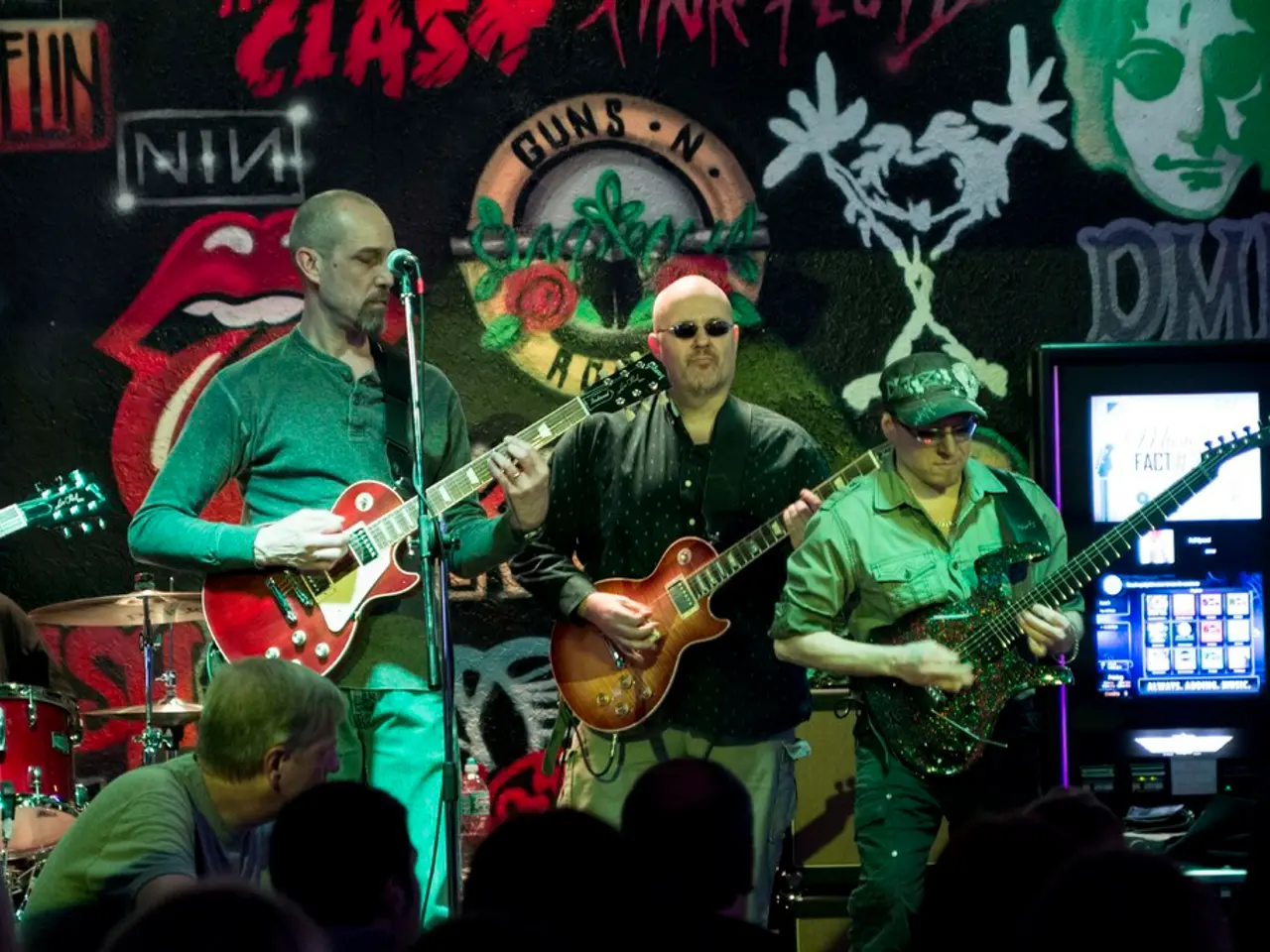Bijelo Dugme's classic anthem, 'Die Kanone', receives a reinterpretation from Laibach, released recently by Mute Records.
In a significant cultural and musical collaboration, Slovenian industrial band Laibach and Yugoslav rock legends Bijelo Dugme have joined forces to release a new single, "Die Kanone". The track, available now on Mute, merges Laibach's martial, post-industrial style with Bijelo Dugme's classic rock and Balkan folk influences.
Formed in Sarajevo, Bosnia and Herzegovina, in 1974, Bijelo Dugme's debut album, "Kad bi' bio bijelo dugme", brought them nationwide fame and earned the label "pastirski rok" (shepherd rock) for its unique sound. The band is widely regarded as one of the most popular and influential acts in the former Socialist Federal Republic of Yugoslavia.
The collaboration marks the 50th anniversary of Bijelo Dugme, initiated by founding member Goran Bregović. It celebrates the band's legacy while critically engaging with themes of Balkan identity, masculinity, nostalgia, and militarism. The cannon serves as a metaphor for traditional and distorted expressions of masculinity prevalent in Balkan mythology, where weapons often symbolize virility and power.
The lyrics have been translated into German, adding layers of meaning by connecting the Yugoslav cultural heritage with contemporary European issues. Particularly, Germany’s ongoing industrial shift from automotive production (symbolized by the Volkswagen Beetle, historically manufactured in Sarajevo) towards arms manufacturing is reflected in the song's militaristic themes.
Laibach has a prolific output, with albums including "NATO" (1994), "Volk" (2006), and "Spectre" (2014). The single reimagines "Top" by Bijelo Dugme, the most successful rock band in the history of former Yugoslavia. The single's artwork features a Volkswagen Beetle, a nod to its Sarajevo manufacturing history.
However, the collaboration has not been without controversy. Laibach's 2018 interview with pro-Kremlin media and their 2006 cover of the Russian anthem have been seen as sympathetic to Russia. Their statement about the Russo-Ukrainian War in 2023, described as a "cynical proxy war for the geostrategic interests of the superpowers and financial capital", was met with backlash in Ukraine, with many finding it offensive and reductive. Their Kyiv concert was cancelled due to these statements.
Despite the controversy, "Die Kanone" stands as a cultural and musical mash-up that confronts notions of Balkan identity, masculinity, and nostalgia. It serves as a reflective statement on how historical symbols of power and identity continue to resonate amid shifting political and industrial landscapes, notably in Germany and the broader European context.
- The collaboration between Slovenian industrial band Laibach and Yugoslav rock legends Bijelo Dugme, celebrated with the single "Die Kanone," spans various aspects of culture, including lifestyle, music, and entertainment.
- Bijelo Dugme, originating in Sarajevo, Bosnia and Herzegovina, revolutionized the music industry in the former Socialist Federal Republic of Yugoslavia with their unique blend of fashion-and-beauty, food-and-drink, and travel-oriented themes in their songs.
- The single "Die Kanone" not only highlights the fusion of Laibach's martial, post-industrial style with Bijelo Dugme's classic rock and Balkan folk influences, but also delves into the complexities of Balkan identity, masculinity, nostalgia, and militarism, transcending the boundaries of just music and delving into theme of sports and geopolitics.




